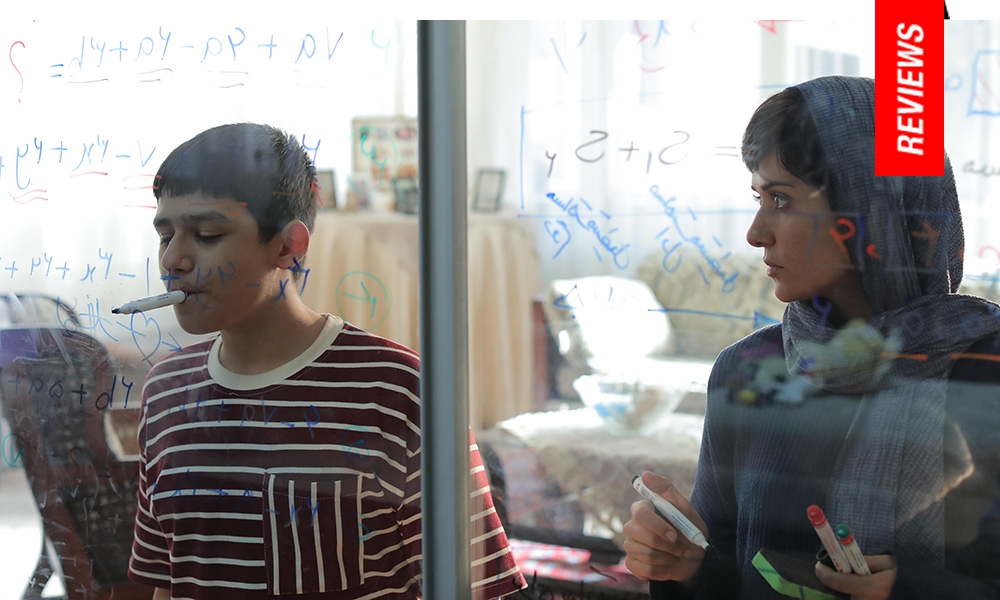All the Regime Allows: Roustaee Finds a Woman Scorned
If there were ever an equivalent to the Hollywood ‘woman’s film’ genre in Iranian cinema it might be Woman and Child, the latest film from Saeed Roustaee, which puts its main protagonist through the ringer and doesn’t allow her to ever come out on top. Following his sprawling familial epic Leila’s Brothers (2022), Roustaee continues to move away from the muscly genre oriented titles of his earlier career, such as Law of Tehran (2019), to focus on a woman demeaned by both her culture and family, despite making futile attempts at seeking justice for various wrongs. Curiously, it’s an ensemble piece wherein no one is inherently likable (sans a sweet little girl caught up in the maelstrom), which casts a murky pallor over a film which insistently defies morality considering no one seems capable of doing the right thing.
Mahnaz (Parinaz Izadyar), a widowed mother of two children, is ready to give up her independence, despite herself, and marry Hamid (Payman Maadi), an ambulance driver who has been courting her at the hospital where she works. The only obstacle is obtaining his family’s concurrence, and so they decide it would be best for her not to disclose the fact she already has two children. The timing seems to be perfect, as her young daughter Neda (Arishda Dorostkar) can easily be managed by her coworker, while her somewhat unruly teenage son Aliyar (Sinan Mohebi) is scheduled to be on a school trip when Hamid’s family arrives. However, Aliyar gets himself expelled from school, necessitating his grandfather (Hassan Pourshirazi), who doesn’t necessarily care for the boy, to take him in. However, when Hamid’s parents arrive, he finds himself changing his mind about Mahnaz, instead declaring he would rather marry her younger sister, Mehri (Soha Niasti). Before Mahnaz can even process this drastic change of events to her best laid plans, she’s besotted with a more devastating tragedy when she learns Aliyar has jumped from a window to escape his grandfather’s home in response to learning of his mother’s impending marriage plans. The aftershocks of these events will test Mahnaz’s relationships with everyone she knows.
There’s an aura of melodrama which feels akin to Douglas Sirk in the first act of Woman and Child as Mahnaz is forced to hide her secret courtship with Hamid from her children. Multiple tragedies strike, but there’s never any cathartic reprieve for poor Mahnaz (and essentially, this could be called Imitation of Strife). To his credit, Roustaee seems to actively avoid substantial reprieve for Mehnaz (and by extension, the audience) considering justice (or even a satisfying comeuppance) materializes. Aliyar, despite his tragic demise, seems to be a nightmare in the making, though it’s unclear if the film itself intends for him to seem merely incorrigible or the predictable byproduct of a fatherless home in contemporary Iran.
As Mahnaz, Parinaz Izadyar navigates a rather frustrating characterization, appropriately outraged but irredeemably naive. Her minor attempts at balancing the scale of justice are foolhardy, at best, and she’s constantly backing herself into a corner difficult to maneuver out of. Payman Maadi, a favorite of Roustaee’s, is a charismatic charlatan, but since Mahnaz insistently ignores every single red flag presented, when he reveals his true colors, it’s only really surprising to her. What does tend to shock is how swiftly her familial support system of women abandons her. If this were an American film, Mahnaz would be the sort of woman an audience would supportively cheer having a psychotic break by going Medieval in her swath of vengeance. But a strange codependence evolves as Mahnaz must contend with the reality of her younger sister marrying Hamid and naming her firstborn son after her own deceased child, despite her request Mehri kindly not do so. As if torn from the pages of Job, Mehnaz must find a way to reconcile these slights.
The contained moments of vengeance do quicken the narrative pulse, such as a risky head-on car collision with the school administrator who expelled Aliyar. But this proves to be a foolhardy move with greater consequences than she anticipated. More satisfying is a murder attempt on her trifling father-in-law, as Mahnaz removes his oxygen tube in the hospital so he’ll suffocate, warily observing him like the iconic scene with Bette Davis in The Little Foxes (1940), cooly ignoring her husband as he dies on the stairway behind her. A moment of bleak, darkly comic resonance follows, as her father-in-law is revived, ironically mirroring the earlier sequence where Aliyar is not.
Ultimately, it’s unclear what we’re supposed to feel for Mahnaz in the final frames, who seems to have laid her grief and anger aside so her family can move forward peaceably, even encapsulating, in an unexpected way, the intimation of the title. But rarely has turning the other cheek ever felt so disappointing.
Reviewed on May 22nd at the 2025 Cannes Film Festival (78th edition) – Competition. 131 Mins.
★★★/☆☆☆☆☆
